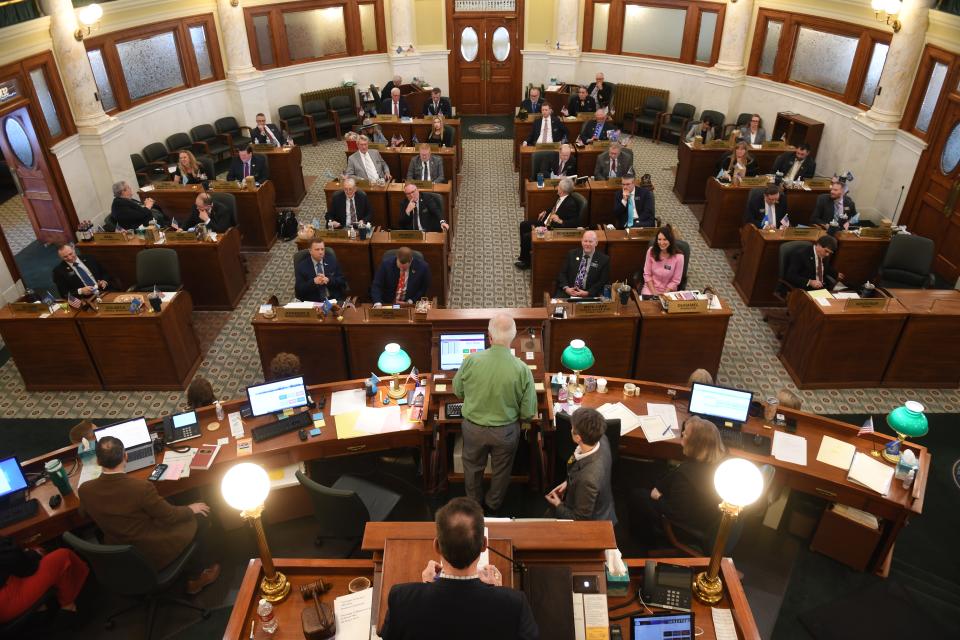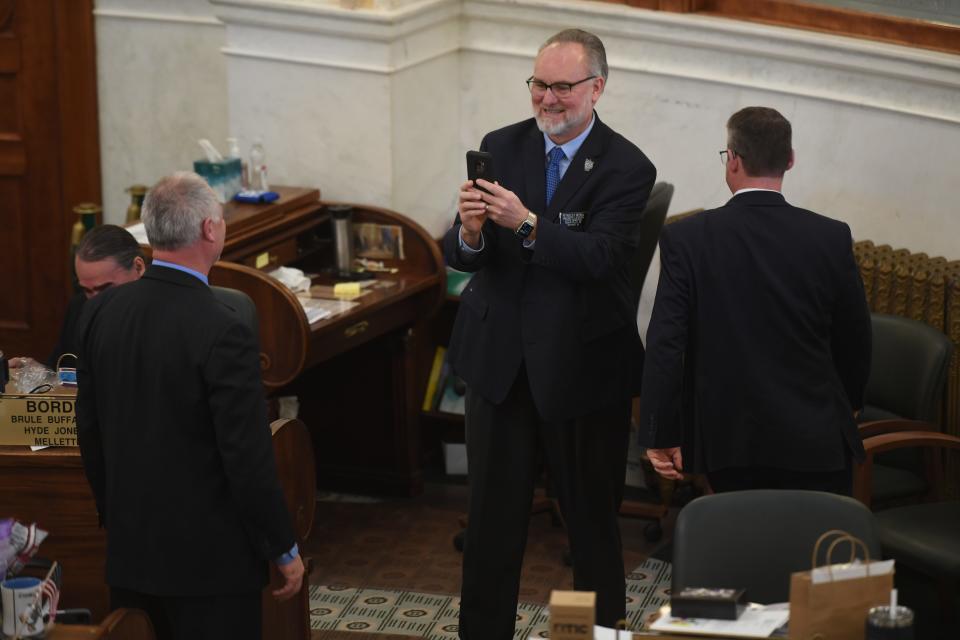Work requirements for Medicaid expansion? SD Senate committee wants voters to decide
PIERRE — An effort to send a ballot question to South Dakota voters regarding Medicaid expansion work requirements passed out of a Senate committee Wednesday morning.
The resolution, SJR 501, would ask voters in November to clarify if people who are part of the Medicaid expansion population should be subject to a work requirement, similar to what’s asked of people receiving federal social service programs such as food stamps.
But opponents said the resolution would be disingenuous to voters who already approved Medicaid expansion during the 2022 election.
More: South Dakota lawmakers are bringing back a Medicaid work requirement resolution in 2024
Rep. Tony Venhuizen, R-Sioux Falls, who sponsored the piece of legislation, said this was the first step of the process.
“What we are proposing is to give South Dakota the flexibility to respond if and when that option becomes available,” he said, explaining that the federal government would have to approve allowing work requirements for Medicaid expansion.
If that were to happen, the state would then be able to figure out the details of exemptions and how the work requirement program would be enacted.

Medicaid expansion covers the residents 18 to 64 who are working, able-bodied adults. Single adults who make less than $20,000 and families of four that make less than $41,000 are eligible for the federal health insurance program.
More than 17,000 South Dakotans as of December were part of the Medicaid enrollment population, according to the Department of Social Services.
The department supported the work requirement resolution, with Secretary Matt Althoff saying many of the social safety net programs such as SNAP and temporary assistance to needy families program already have work requirements.
Althoff was subjected to lengthy questioning from Sen. Reynold Nesiba, D-Sioux Falls, about the process of Medicaid expansion and its enrollment. Nesiba was the single no vote on the resolution.

Althoff said many of the people approved for expansion coverage were already receiving SNAP or TANF benefits and were subject to the work requirements already in place.
Opposition came from many healthcare related industries including Avera Health and the American Heart Association and American Cancer Society Cancer Action Network.
“Work requirements just don’t work,” Kim Malsam-Rysdon, a lobbyist for Avera Health, said. “They don’t result in more people working.”
More: Gov. Kristi Noem asks for a $7.27 billion state budget in FY2025
Deb Fischer-Clemens, a lobbyist for the American Heart Association and the Presentation Sisters of Aberdeen, added that when people have healthcare coverage, they seek out preventative care, allowing them to continue in the workforce.
“Do we have evidence that there’s actually an issue when you consider the folks on Medicaid expansion?” she asked. “Have you considered how creating work requirements will impact seasonal workers, tourism, childcare, caregivers especially in our rural communities.”
The resolution passed 7-1 and now heads to the Senate for a full body vote.
Sen. Erin Tobin, R-Winner, said that it was reasonable to send the work requirement decision to the people.
“As a nurse, I really wanted to make sure that we do it right when it happens and fortunately, we have a few steps that need to take place before we get there,” she said. “I think there’s an opportunity to do it right and I think if somebody’s going to do it right it certainly can be us.”
This article originally appeared on Sioux Falls Argus Leader: Medicaid expansion work requirements could head to voters in SD

